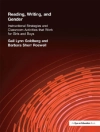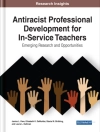Mehr denn je prägen computergestützte und algorithmische Modalitäten gesellschaftliche Transformationsprozesse. Die algorithmische Bildung ist herausgefordert, transdisziplinäre Synthesen für Modellvorstellungen und Praxisansätze fruchtbar zu machen. Doch wie können Ästhetik und Kreativität ihren Eingang in algorithmische Bildungspraktiken finden? Der Sammelband vereint innovative Beiträge, mit denen sowohl Lehrende als auch Lernende zu schöpferischem Denken und nachhaltigem Handeln in der digitalen, wissensbasierten Netzwerkgesellschaft angeregt werden.
Tabla de materias
Lydia Schulze Heuling, Christian Filk: Introduction
Susanne Martin: Dancing with Real Bodies: Dance Improvisation for Engineering, Science, and Architecture Students
Simon Nestler, Sven Quadflieg, Klaus Neuburg: The Design Prism. How Informatics Education Can Benefit from Design Competencies
Ellen Harlizius-Klück, Alex Mc Lean: The PENELOPE Project: A Case Study in Computational Thinking
Hanno Schauer: Informatikkonzepte an Nicht-Informatiker mit Prozessmodellierungstechniken vermitteln
Michael Herczeg, Alexander Ohlei, Toni Schumacher, Thomas Winkler: Ambient Learning Spaces: Systemic Learning in Physical-Digital Interactive Spaces
Willy Noll: Ästhetische Erfahrung als produktive Enttäuschung – Entwurf eines (kunst-)pädagogischen Making
Elke Mark, Lindsey French: In Formation: Micro-Phenomenology as a Technology of Memory
Harry Lehmann: From Scores to Samples
Christoph Best: Ars gratia retium? Understanding How Artificial Neural Networks Learn to Emulate Art
James Bridle: Something Is Wrong on the Internet
Sobre el autor
Lydia Schulze Heuling is professor at the Department of Sport, Food and Natural Sciences at Western Norway University of Applied Sciences (HVL), Bergen, Norway.
Christian Filk is professor and head of the Department for Media Education at Europa-Universität Flensburg, Germany.












